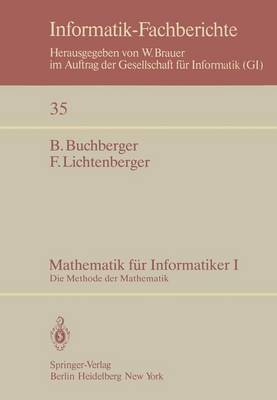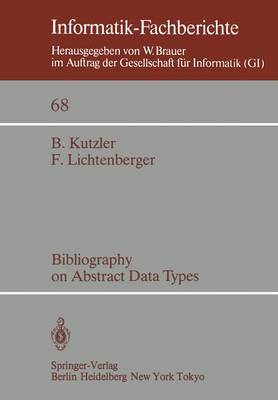Informatik-Fachberichte
2 primary works
Book 35
Book 68
It will not be our purpose in this chapter to give an introduction to the field of abstract data types proper. There are many such introductions - see the references in the bibliography. We intend rather to provide a beginner's guide to the 870 papers cited there. For experts, the 1 i st of those programmi ng languages and systems which appear in the titles should prove useful. We shall not recommend one single paper as a starting point but mention several papers which cover various aspects of the theory. Historically, the papers of [PARNAS 70] and [HOARE 72] are generally regarded as the origins of the field. Parnas introduced the principle of 'information hiding' and Hoare emphasized the distinction between an abstract object and it's concrete representati on. An early survey on specifi cation techni ques for data abstractions is [LISKOV/ZILLES 75]. The starting point for the tremendous expansion of work on algebraically spe- cified abstract data types was, in our OplnlOn, John Guttag's thesis [GUTTAG 75]. This work was superseded by [GUTTAG/HORNING 78], which is easier to come by.
We woul d also strongl y recommend to survey [GUTTAG/HOROWITZ/MUSSER 76a and 76b] for insights into the techniques of algebraically specifiing data types and its impact on software validation. For german speakers we would recommend [KREOWSKI 78] or [KLAEREN 83] which pro- vide excellent introductions.
We woul d also strongl y recommend to survey [GUTTAG/HOROWITZ/MUSSER 76a and 76b] for insights into the techniques of algebraically specifiing data types and its impact on software validation. For german speakers we would recommend [KREOWSKI 78] or [KLAEREN 83] which pro- vide excellent introductions.

